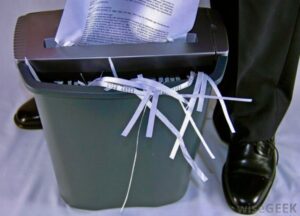The Massachusetts Appeals Court has issued an important reminder about the importance of preserving potentially relevant evidence once a party is on notice of possible litigation, and the serious consequences of failing to do so. The case was filed in the Superior Court’s Business Litigation Session, which typically hears complex commercial litigation matters, arising out of a high-end real estate development dispute. After the case began, plaintiff discovered that much of the relevant documentary evidence had been destroyed, including emails and text messages regarding the key issues in the case, after the defendant had received a pre-litigation “notice of major decision impasse” from plaintiff, whatever that means. While the Superior Court did not believe this communication was sufficient to put the defendant on notice that litigation was likely, a single justice of the Appeals Court disagreed, ruling that defendant “knew or reasonably should have known” that evidence relevant to a potential action needed to be preserved. Therefore, the Appeals Court issued a sanction for the spoliation (i.e., destruction or failure to preserve) of evidence that the jury could be instructed that it could conclude that the destroyed documents would have been harmful to defendant’s case, a very severe sanction.
Laying aside the merits of the underlying case or the correctness of the decision, the important lesson for both litigators and companies is to exercise great diligence in preserving electronic and paper documents when there is even a whiff of a potential dispute. Better to be on the safe side, and put a litigation hold in place, turning off all auto-delete functions and affirmatively instructing any even tangentially involved employees not to destroy any documents relating in any way to the issues in the case. Don’t want for a formal demand letter or a lawsuit to do so, as based upon this decision, that may be too late. Then, what might have been a very defensible claim may end up being a loser because the other side will be able to argue to a jury that the destroyed documents “must have contained damaging info” and you will be left trying to explain that it was actually just an innocent, harmless mistake. That is not a position you ever want to be in at trial and will likely force you to settle the matter for a far higher amount than would otherwise have been the case. Proving once again the truth of the old adage that an ounce of prevention is worth a pound of cure.

